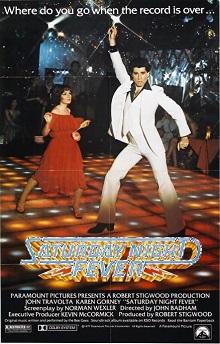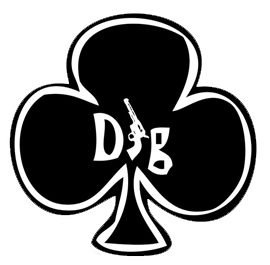Scenes & Songs is a feature focused on the intersection of music and film, or in this case, TV. Each installment intends to examine movies and shows that involve significant musical subject content, distinct soundtracks, or maybe even just an excellent song used for a specific scene. View all

Scenes & Songs is a feature focused on the intersection of music and film. Each installment intends to examine movies that involve significant musical subject content and/or distinct soundtracks, or maybe even just an excellent song used for a specific scene.
This may be shocking, but I lived the first twenty-seven and a half-plus years of my life without having ever seen Saturday Night Fever. I recently read the very interesting book Hot Stuff: Disco and the Remaking of American Culture by Alice Echols (available at WORD bookstore in Greenpoint for local readers). It featured a whole chapter on the film, so I decided it was time I finally watched it. I was a little sheepish about renting it and I honestly didn't expect much, but it proved to be a good and surprisingly gritty film.
Saturday Night Fever is the disco movie. Disregarding one's personal feelings about disco as music, it simply is an incredible example of a full-on portrayal of a musical subculture, of total immersion into a scene. This idea of how a style of music informs one's identity, dictating dress codes, ways of talking, and a variety of physical rituals is always something I really dig. I also love how this film captures something universally appealing about music: its potential as an outlet of escape from mundane reality and as a conduit of dreams and possibility. Main character Tony Manero (played by John Travolta, who totally nails it) doesn't go to college, has a shitty job at a paint store, and lives with his parents, but every weekend, he is the king of the Odyssey disco where he lords over the dance floor to everyone's adulation.
Besides being about a musical genre, this is great as a look at a neighborhood community (Bay Ridge, Brooklyn), social/economic/ethnic classes and groups (blue-collar ethnic Italian Americans on the cusp of de-industrialization and massive social transformation where traditional influences like the Catholic Church and the family unit were eroding), and coming of age in general. It is way more intense than I imagined and I think many who have seen the film might be surprised if they only know the PG version, not the original R-rated release. There is violence, drug use, a lot of sexual content including scenes of rape, an unexpected death, and a very ambivalent ending to the main arc between Tony and his dance partner Stephanie Mangano. All told, this is more of a gritty 1970s film than its reputation seems to suggest.
The images that have been imprinted upon the zeitgeist are the dance sequences. The opening scene of Tony strutting around Bay Ridge to the Bee Gees "Stayin' Alive," may be played out to some, but I could totally understand what made it so iconic. It is a brilliant and electric introduction to a multi-dimensional character, setting the tone in more ways than one for the rest of the film. Tony and Stephanie do have a great chemistry in their scenes at both the rehearsal hall and the club (and I have to say their awkward "date" conversation at the coffee shop is really well-done), but if I had to pick a favorite, it was probably the solo dance of Tony in the middle of the film. Whether you like the music and choreography or not, there is no denying that this clip captures the essence of disco.
I don't have a lot of experience with disco. It's mainly been in the background as seemingly a widely disdained genre and an ironic punchline. I was curious to actually listen to it without preconceived notions because of Alice Echols' work. She situates it as a genre that was inextricably linked to the social transitions of the 1970s for women, African-Americans, and homosexuals. All were marginalized groups making advances, and what was so interesting to me was how disco was both empowering and a mechanism for attack and controversy. For instance, discos were an important refuge for gay men, a setting where they could feel free about their desires. Yet, to some of the "old guard" queen types, the macho / clone look that developed from the need to have a well-sculpted body due to disco's emphasis on all-night dancing was alienating. Women enjoyed great success as disco divas, like Chaka Khan, Donna Summer, and LaBelle, and there is no denying their bold images helped bring women's rights closer to equal footing with men. However, it also brought them under scrutiny and led many to criticize disco as a hyper-artificial, all-image-no-substance form of crass commerce.
The truth is that disco can indeed be argued each way in all instances and has a much more complex legacy than I ever imagined. Besides all of its larger social effects, what struck me as most intriguing was the highly communal aspect of it. All genres of music produce communities of fans, but the very act of dancing in large, packed disco clubs to a kind of music that emphasizes rhythm is probably more collective than most. Anything that brings people together and gives them a chance to feel part of something bigger, especially if they couldn't get that sensation anywhere else, can't be all bad.
Between the scholarly approach of Alice and the fact that plenty of artists now do acknowledge a fondness for disco, listening to the music was mainly enjoyable. I've never been one to listen to a lot of dance music, so it's not as if I suddenly fell in love with disco, but I did come to really like several songs. Like I said, we are now to a point that disco has been re-appropriated in many different ways, and even then, many non-disco artists took a spin or two under the mirror ball. "Miss You" by the Rolling Stones is just one example. It's interesting to think that pretty much everyone can name disco when they hear it, regardless of it being unpopular, outdated, reviled, or what. The steady pulsing beat, the shifting octave bass lines, the swirls of strings and blasts of horns, the scratchy guitar and the soaring vocals, all have become part of our cultural DNA. Sometimes it sounds so good. Here's one track I liked from discovering in the book, "Rock Your Baby" by George McCrae.
It's fun to explore music about which you have very little knowledge, especially with the context of it being characterized in a more nuanced light than you had previously understood. I recommend checking out Alice's book Hot Stuff if you'd like to reconsider disco or learn more about its evolution and implications. As for Saturday Night Fever, it is a masterful evocation of the era of a musical subculture and special for how it captured a movement just as it was exploding to the mainstream, a feat pretty much unparalleled by other genres. I was pleasantly surprised by its depth, enjoyed watching it, and would recommend it if you are like me and somehow haven't seen it yet.
I would love to hear what you all think about disco, past and present. Share your thoughts in the comments below, on our Facebook page or via Twitter (@thsewhodig, @stevewhodigs).

